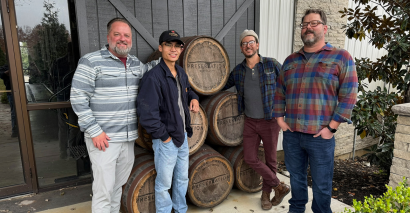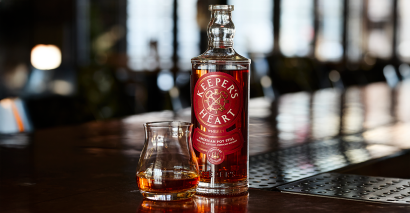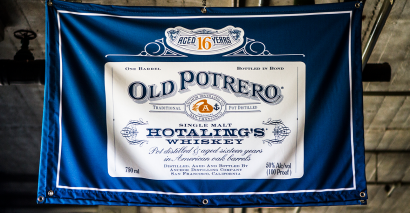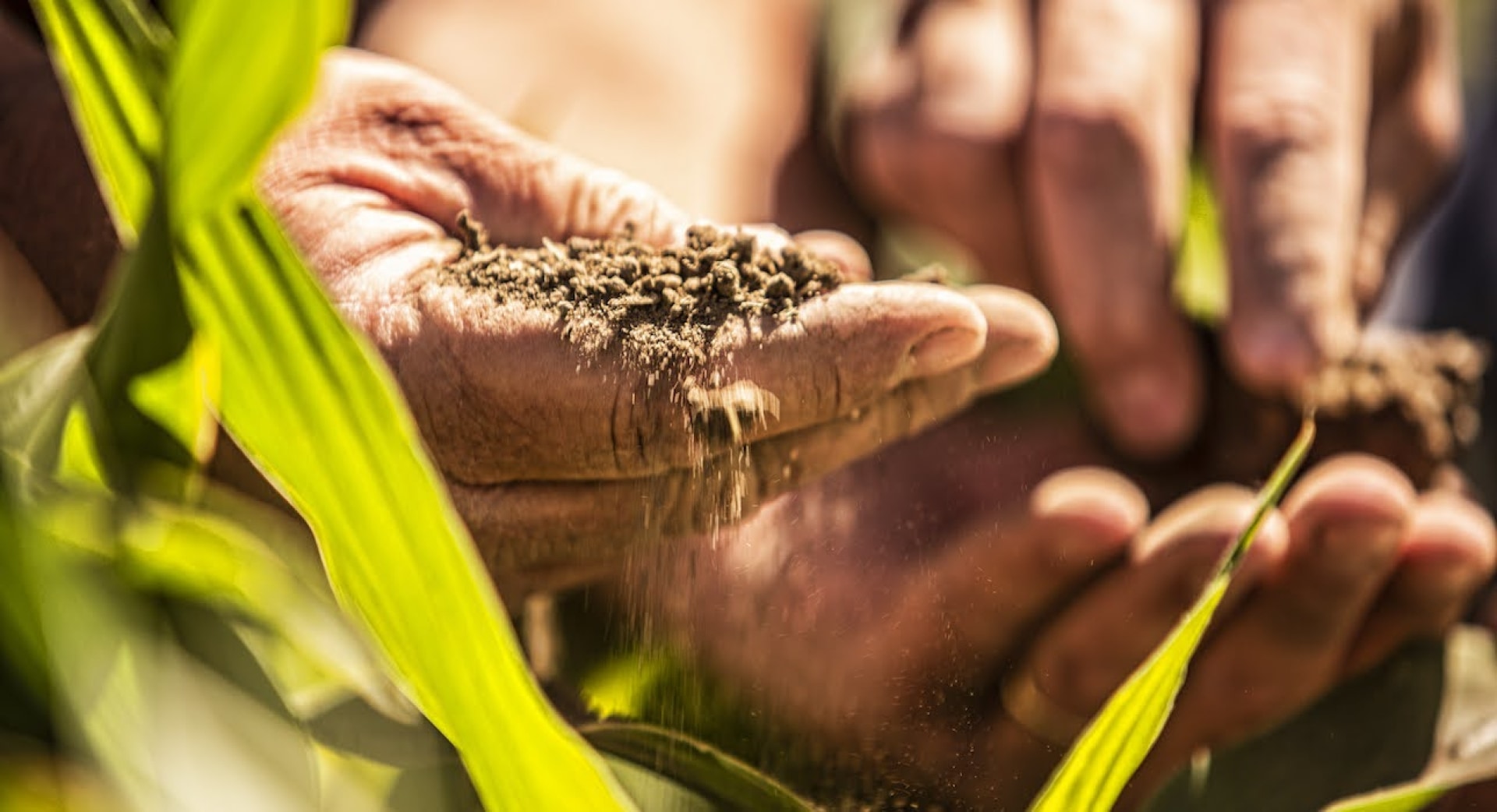
Every April 22nd, millions around the world recognize Earth Day, a celebration first held in 1970 to raise awareness and support for the planet’s precious natural resources. In the world of whisky, there are some distillers who have to keep a closer eye on the earth around them than others—and that’s because they’re entirely grain to glass.
What exactly does grain-to-glass distilling entail? For the most part, it’s exactly as it sounds—the distillery handles every part of production, starting with the very grains the whisky is made from. While a few go as far as to grow the grains themselves, more grain-to-glass distillers purchase some or all of their grain from farms in spitting distance of their stills. Then, those grains are distilled, and the whiskey is matured and bottled on-site. Voila! Grain-to-glass.
In celebration of Earth Day, we’ve rounded up a number of true grain-to-glass distilleries that take care of their locales in the name of taking care of their whiskeys.
Frey Ranch
The Frey family has farmed in Fallon, Nevada since 1854, though it’d be some 152 years before it added distiller to its resumé. The area surrounding Fallon is a dusty, desolate desert, which makes the town’s fertile farmland all the more surprising; the area is famous for its fields of alfalfa, and also does well with wheat, rye, barley, oats, and corn. For the Freys, this means they can—and do—make just about any type of whiskey, though their biggest production goes to their flagship straight bourbon, which is a four-grain whiskey made from corn, wheat, rye, and two-row barley that’s malted at the ranch.
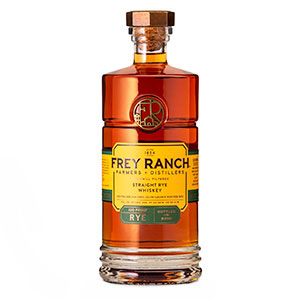 93 points, Frey Ranch Bottled in Bond Rye (Batch 1), 50%, $60
93 points, Frey Ranch Bottled in Bond Rye (Batch 1), 50%, $60
High Wire Distilling
Husband-and-wife duo Scott Blackwell and Ann Marshall started High Wire in Charleston, South Carolina in 2013, though its first whiskeys wouldn’t appear until 2016. Blackwell was once the owner of an organic bakery in town, Immaculate Baking Co., and his experience as a baker imbued him a unique knowledge of artisanal grains—one that’s proven useful in distillation. High Wire works with local farmers for unique heirloom grain varietals, namely Jimmy Red corn, which was grown for decades on James Island—a town not far from Charleston—before it was nearly lost forever.
90 points, High Wire Distilling Co. Jimmy Red Classic Straight Bourbon, 47.5%, $60
Hillrock Estate
Just two hours north of New York City sits Hillrock Estate, a distillery that exemplifies grain to glass thanks to its focus on everything that goes into a bottle, from the soil and grain to the water and yeast. Owners Jeffrey Baker and Cathy Franklin have spoken of wanting to emulate the Napa Valley, in terms of their passion for the region’s agriculture, and giving much of their day-to-day focus to farming. Hillrock’s grains come directly from its own farmland, which stretches across TK acres and encompasses a variety of heirloom grains, including TK. In an unusual move for any modern distiller, let alone an American one, Hillrock also has its own malting floor, enabling it to control the malting process as well.
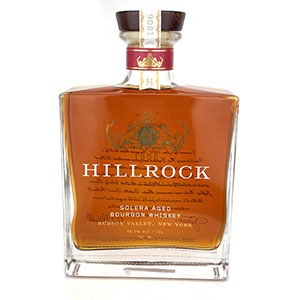 91 points, Hillrock Estate Solera Aged Bourbon, 46.3%, $100
91 points, Hillrock Estate Solera Aged Bourbon, 46.3%, $100
Driftless Glen
This Baraboo, Wisconsin-based distillery is surrounded by hills, valleys, prairie land, and deep stores of limestone, all of which offer ideal growing conditions for grains. While it doesn’t grow grains itself, the distillery works with local farmers for its corn, rye, and barley; it also highlights its water source, a natural sandstone aquifer, as key to production.
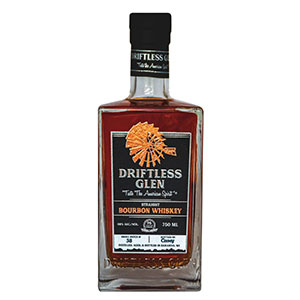 90 points, Driftless Glen Bourbon, 48%, $45
90 points, Driftless Glen Bourbon, 48%, $45
Brush Creek
Brush Creek is among the most extravagant whiskey-centric getaways you can find in the U.S. Across the 30,000-acre site are three lodging options and a broad assortment of outdoor activities, but it’s The Farm at Brush Creek where you’ll find the whiskey. The Farm has its own brewery and distillery, the latter producing whiskey, vodka, and gin. The distillery offers an in-depth sensory experience on how spirits are created at The Farm—encompassing a distillery tour, the historical background of its spirits, their connection to the land and environment, and an elevated tasting of Brush Creek’s whiskeys, which include a bourbon and rye. While Brush Creek’s available whiskeys are currently sourced, it has been laying down its own whiskey—made from locally sourced grains—since 2019.
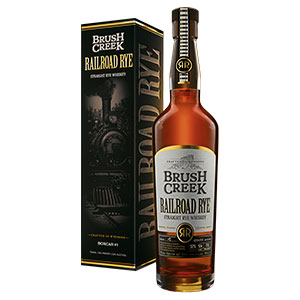 88 points, Brush Creek Railroad Rye (Boxcar #1), 52%, $130
88 points, Brush Creek Railroad Rye (Boxcar #1), 52%, $130
Hard Truth
Nashville, Indiana-based Hard Truth Distilling introduced its first grain-to-glass whiskey, Hard Truth Sweet Mash Rye, in 2021. Since then, the distillery has unveiled a number of others, including three bourbons: Sweet Mash, Wheated, and Four Grain. Hard Truth works with local Indiana farmers for its grains; most of the wheat and corn used by the distillery is grown by one farmer in particular, Doug Miller, whose farm is located just 60 miles from the distillery. A majority of the rye is also grown in-state by farmer Dr. Duane Kuhlenschmidt.
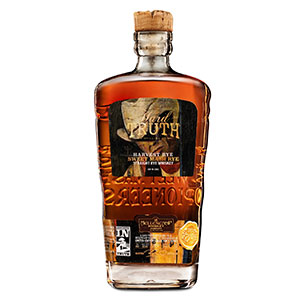 92 points, Hard Truth Harvest Rye Sweet Mash, 53%, $70
92 points, Hard Truth Harvest Rye Sweet Mash, 53%, $70
Grand Teton
A newer whiskey, Grand Teton launched its first American single malt in 2021. A newer single malt, also made from 100% malted barley sourced directly from the distillery’s home state of Idaho, debuted last year. Previously, the distillery also released a grain-to-glass corn whiskey that was made from local Idaho corn, and entirely milled and distilled by Grand Teton. All of Grand Teton’s whiskeys are proofed down with Rocky Mountain spring water.
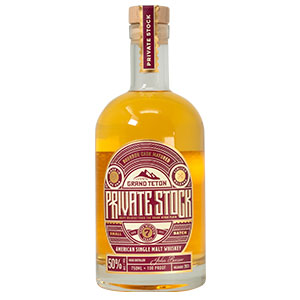 N/A, Grand Teton Private Stock American Single Malt Whiskey, 50%, $80
N/A, Grand Teton Private Stock American Single Malt Whiskey, 50%, $80
Dry Fly
Washington’s Dry Fly Distilling gets all of its grains from family farms that lie within 30 miles of the distillery in Spokane. These go into a wide array of whiskeys, including rye, bourbon, wheat, triticale, and inventive blends. Dry Fly has gone as far as collaborating with local farmers on actual mashbills as well, working on its O’Danaghers line—which pays homage to Irish whiskey traditions—with local farmer Tim Danaher, taking grains grown exclusively at his family’s farm.
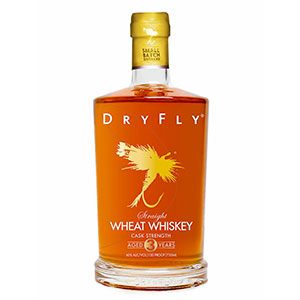 92 points, Dry Fly 3 year old Cask Strength Wheat Whiskey, 60%, $50
92 points, Dry Fly 3 year old Cask Strength Wheat Whiskey, 60%, $50


